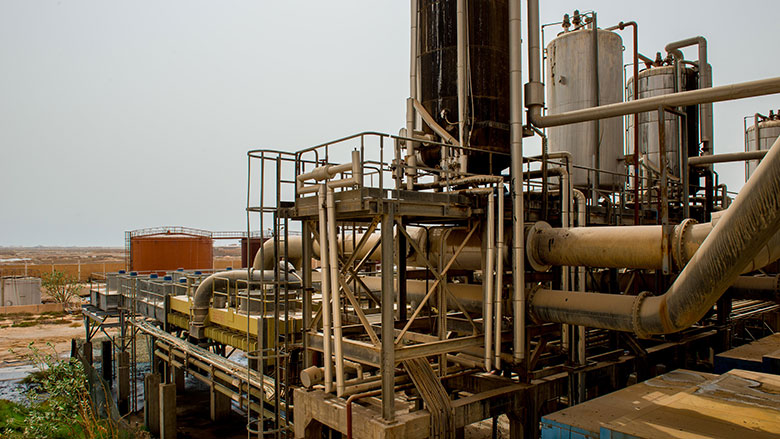NOUAKCHOTT, June 12, 2020 —Mauritania discovered its first natural gas field—Grande Tortue Ahmeyim (GTA)—on the maritime border with Senegal in 2015. While the development of this vast field has the potential to rapidly increase the state’s resources, allowing the country to accelerate its development, international experience shows that an abundance of natural resources also poses risks that should be avoided.
According to a new World Bank report titled Macroeconomic Management of Gas Revenues in Mauritania, it is difficult to project the fiscal revenues that might be generated by gas development in Mauritania. As with any major oil or gas project, the GTA project faces several risks. Some are exogenous, such as price volatility on international markets and the COVID-19 pandemic, which will push back the initial timeline for the start of gas production from 2022 to 2023, while others are closely linked to budgetary options and government decision-making.
International experience shows in particular that resource-rich countries can face significant macroeconomic challenges that complicate natural resource management. The report highlights four main challenges: managing the uncertainty associated with gas price volatility on international markets, the period for development of the field and ensuring intergenerational equity, maximizing the revenues derived from gas development while curbing the inflationary effects on the economy, and maximizing the conversion of resources into productive assets that are equitably distributed between consumption and investment, among the sectors, and among the different population groups. Wael Mansour and Samer Matta, World Bank economists and authors of the report, explain that “this calls for striking the right balance between investment and consumption across the key sectors such as physical and human capital and across the country’s different income groups.”
Drawing on international best practices, the report proposes a macroeconomic framework that is based on structural reforms and fiscal rules that are suited for the management of gas resources, while leaving the formulation of specific measures to other technical assistance projects and complementary modeling exercises. The goal is to inform policymakers and the general public of the lessons learned from international experience and of the different possible options from a public policy standpoint.
Suitable Fiscal Policy Measures
Using a computable general equilibrium model, the report illustrates that the adoption of fiscal rules, together with structural reforms, could increase Mauritania’s economic growth potential. These structural reforms could target, inter alia, improving public expenditure efficiency, making exchange rate regimes more flexible, and improving the business climate in order to boost the productivity of the non-extractive sectors. Without structural reforms and fiscal rules, Mauritania’s real exchange rate would rise, its competitiveness would decline, and its budget deficit would increase.
Strengthening Institutions
In addition to discussion of a macroeconomic framework suited to the management of gas resources, Laurent Msellati, World Bank Country Manager for Mauritania, states that “this report underscores the need to implement institutional reforms that are important to lay the groundwork for a future framework.”
Good governance and a sound public finance management system are essential to ensure the sustainability of macroeconomic policies and rules in resource-rich countries. The report therefore recommends the implementation of clear institutional processes that should be applied over time. For example, gas resources should be included in the budget so as to avoid extrabudgetary operations and promote fiscal transparency. Parliament and the national court of account should also be able to assess the management of gas resources. In addition, Mauritania has a national fund for hydrocarbon reserves, established in 2006 to manage the oil revenue derived from the Chinguetti oil field. The revenue expected from the GTA project provides a good opportunity to convert this fund from a savings account into a more active financial institution. This will require rethinking the structure and mandate of the fund, adopting simple and specific management rules, and strengthening the governance of the fund. For example, the audits described in Law 2008-20 would have to be conducted in a timely manner. The authorities could also take advantage of this opportunity to adopt a strategy that is based on a more diversified and better performing investment portfolio.
